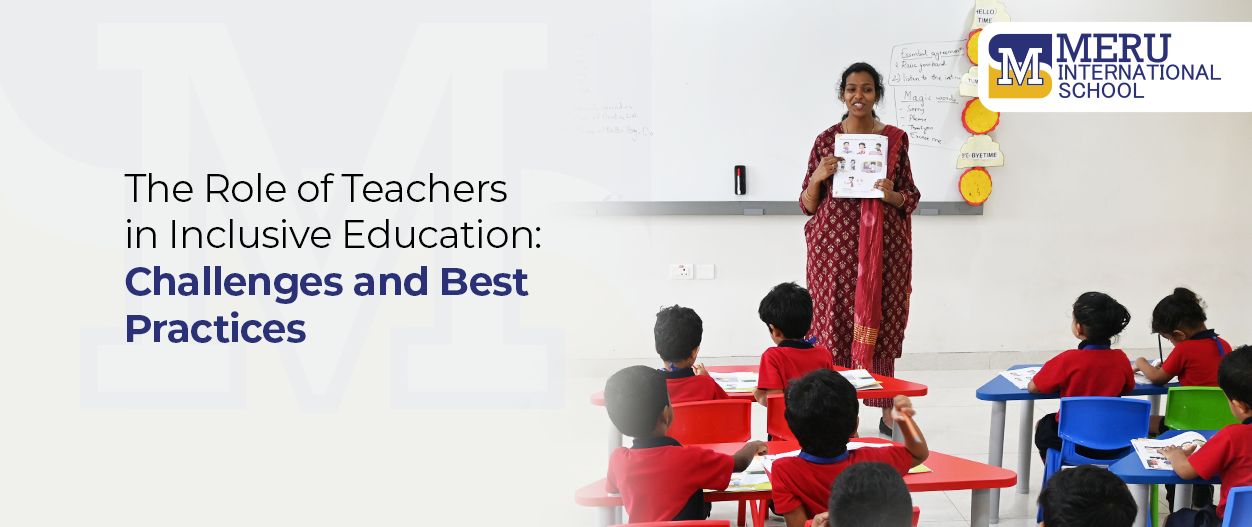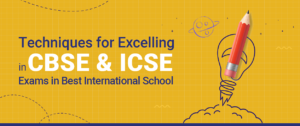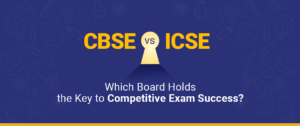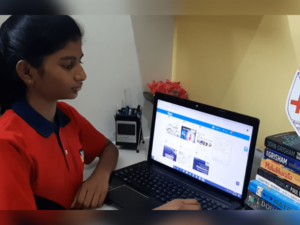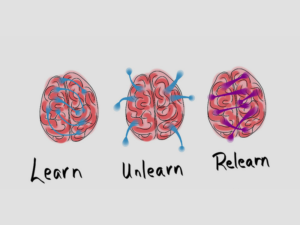Welcome to the world of inclusive education, where every student’s unique potential is not just recognised but celebrated. Imagine stepping into a classroom where diversity is the norm, where individual differences are considered colourful gems, and where the magic of learning knows no bounds. As we embark on this journey, let us ask you a question: Do you remember that one teacher who made a profound impact on your life?
Perhaps it was their unwavering support, their ability to ignite your curiosity, or their inclusive spirit that made all the difference. Inclusive education is about channelling that spirit into every classroom, making sure no child is left behind.
So, fasten your seatbelts, because in this blog, we’re diving deep into “The Role of Teachers in Inclusive Education: Challenges and Best Practices,” while keeping a keen eye on finding the best CBSE school in Hyderabad or CBSE school in Miyapur to nurture inclusive learning environments.
Understanding Inclusive Education
Inclusive education is an educational philosophy and approach that seeks to provide equal opportunities for all students, regardless of their individual backgrounds, abilities, disabilities, or special needs. The core principle of inclusive education is to create learning environments where every student, regardless of their differences, can participate, learn, and thrive together.
Inclusive classrooms are where diversity is celebrated, and individual differences are regarded as valuable assets, not roadblocks. Here, the aim is not just to teach tolerance but to revel in the symphony of life that students compose together. In this inclusive educational journey, each student becomes an essential part of the collective learning experience, creating a harmonious and enriching environment for all.
The Role of Teachers in Inclusive Education
In a classroom, children are like the vibrant beads, and teachers act as the thread that weaves them into a stunning necklace of captivating learning. Without proactive teachers, inclusive education would be a mare’s nest.
Teachers do more than just share knowledge; they also care for students’ feelings, encourage them to adapt, and help nurture their talents. Let’s explore some key roles teachers play in inclusive education:
1. Creating an Inclusive Classroom Environment
The first step in inclusive education is setting the stage for an inclusive classroom. Teachers play a pivotal role in creating an environment where every student feels welcome, respected, and valued. This means using inclusive language, promoting empathy, and fostering a culture of acceptance.
2. Understanding Diverse Needs
Teachers must be knowledgeable about the diverse needs of their students. This involves identifying learning disabilities, behavioural challenges, and any other special requirements. Once identified, teachers can tailor their teaching methods and materials to meet these needs.
3. Differentiated Instruction
Inclusive education thrives on differentiated instruction. Teachers must adapt their teaching strategies to accommodate various learning styles and abilities. This may involve modifying lesson plans, using alternative assessment methods, or providing additional support.
Challenges in Implementing Inclusive Education
In the realm of inclusive education, where every student is unique in their own kind, teachers find themselves at the forefront of a noble mission. However, this journey is not without its share of challenges.
Picture a landscape marked by three towering peaks, each presenting its own formidable obstacle.
1. Lack of Resources
In the world of inclusive education, teachers often face a tough challenge – a shortage of essential resources. It’s like trying to cook your favourite meal but missing key ingredients.
In this resource-scarce environment, teachers need to use their teaching and problem-solving skills wisely. Working closely with school administrators can be a smart move. Together, they go on a quest to find creative solutions, turning limitations into chances for success. It’s a journey where creativity is their guide, helping them create clever plans that fill the gaps and make sure every student’s unique needs are taken care of.
2. Teacher Training
In the ever-evolving landscape of education, not all teachers receive the comprehensive training they need to navigate the diverse and dynamic terrain of inclusive education. It’s like setting sail without a map or compass, hoping to reach uncharted shores.
To tackle this issue, the path to inclusive education becomes an ongoing journey of learning and improvement. Teachers play the roles of both students and guides, navigating through the complex world of specialised teaching methods and strategies. They rely on continuous professional development programs and access to helpful resources like a compass and map, empowering them to gain the skills and knowledge they need.
3. Resistance to Change
Implementing inclusive education often encounters resistance akin to formidable fortress walls. These barriers aren’t just constructed of bricks and mortar but are composed of scepticism and fear, erected by various stakeholders – parents, students, and even some educators.
To conquer this challenge, teachers need skills like a diplomat’s tact and an advocate’s enthusiasm. Good communication is like a bridge that connects different opinions. Teachers must become skilled at speaking about inclusion, clearing up doubts, and fostering understanding. They take the lead in promoting the many advantages of inclusion. It’s like a mission where the power of words can break down even the toughest obstacles, paving the way for a brighter, more inclusive future for everyone.
4. Best Practices in Inclusive Education
In the ever-evolving landscape of education, we have given below the best practices and approaches that empower teachers and schools to create better learning environments for inclusive education:
1. Collaborative Teaching
Collaboration between general education and special education teachers is a cornerstone of inclusive education. This approach allows for the sharing of expertise and resources, ultimately benefiting all students.
2. Individualised Education Plans (IEPs)
Developing and regularly reviewing IEPs for students with special needs is essential. These plans outline specific goals, accommodations, and support services tailored to each student’s requirements.
3. Peer Support and Peer Tutoring
Encouraging peer support and peer tutoring can create a more inclusive classroom atmosphere. Students learn from and support each other, fostering a sense of community and empathy.
4. Choosing the Right CBSE School
Selecting the best CBSE school in Hyderabad or particularly best CBSE school in Miyapur for inclusive education is crucial. Look for institutions that:
- Embrace the philosophy of inclusive education.
- Provide ongoing teacher training and professional development.
- Offer a range of support services for students with diverse needs.
- Promote a culture of diversity and inclusion throughout the school.
Conclusion
As we conclude our exploration of the teacher’s pivotal role in inclusive education, we uncover a profound truth – teachers are the foundation of inclusive education.
In this journey, we’ve glimpsed the challenges they embrace as opportunities and the best practices that lead to transformative classrooms. But remember, the quest for inclusivity doesn’t end at the school gate. It extends to choosing the best CBSE school in Hyderabad, one that not only teaches but exemplifies the values of inclusive education.
Meru International School, stands out as one of the best CBSE schools in Hyderabad, shining for its commitment to inclusive education. We cherish the belief that every student holds unique, undiscovered talents which we have to identify and polish. Our collaborative learning environment empowers students to realise their full potential, paving the way for their promising future. Moreover, our well-trained teachers, coupled with top-notch resources and international-standard technology, ensure an enriching and effective learning experience for all.

